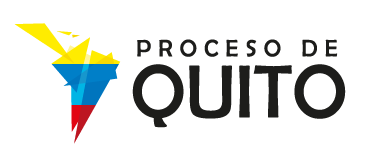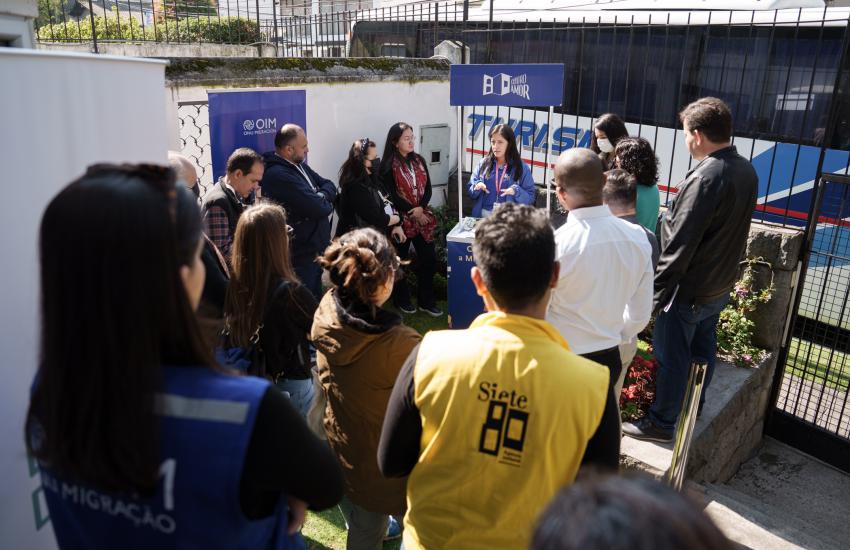Field visits strengthen the Regional Meeting of Support Spaces
The experience of three Protection and Integration Centers and Support Spaces for refugees and migrants was a revealing experience for the participants of the Regional Meeting held in Quito, Ecuador. That's how they lived it.
“This experience changed my vision of what I could implement in my country. It generated new ideas for me”, said Lorena Jones, director of the Human Rights division in Uruguay, after visiting three different experiences for the protection, reception, integration and insertion of refugees and migrants, during the second day of the Regional Meeting of Centers and Support Spaces.
Rildo Rivero, in charge of the executive secretariat of the CONARE in Paraguay, expressed himself in the same sense: "The meeting has left me clear ideas on how to address the issue in my country." For the exhibition, he presented a map drawn by hand, in which he exemplified the ideas that he wanted to take, adjust and replicate in his country.
The regional meeting was organized by the Quito Process, the R4V Support Spaces Regional Working Group and the Global Network of IntegrHa-bitat Centers, with the support of the United Nations Agencies UNHCR, IOM, UN HABITAT, UNICEF and the NGO Ret International. It had more than 70 participants from the entire region who work directly with temporary reception, orientation and integration centers and Support Spaces, from various sectors such as governments, civil society and religious communities from 14 countries in Latin America and the Caribbean.
After an intense day of discussions and sharing experiences, the field visits began with a tour of the AMOR Center, a structure organized in a house in the heart of Quito, which is part of the Regional Network of Support Spaces, and where refugees and migrants can find a safe space and receive assistance, protection, information, and guidance on access to rights and services. A community space with an orchard and services for all kinds of needs grabbed the attention of the workshop participants, who kept asking questions about it.
The second visit was to Casa Somos Cotocollao, an initiative of the Quito municipality that is part of the IntegrHabitat Network, which seeks to offer communities in the city's neighborhoods spaces for participation, training, and recreation for boys, girls, adolescents and adults, both locals and refugees and migrants, without any distinction. The participatory and self-management model of Casa Somos makes it possible for the members of the community to attend the workshops and be replicators of the activities that are carried out in the houses.
The tour ended at the Center for Equity and Justice of the Municipality of Quito, located in the Quitumbe area, where free specialized care services are provided to women and children, in a network model to meet specific protection and assistance needs. Social.
Through these experiences, the participants were able to observe how the concept of Support Spaces can be applied in practice, through actions focused on refugees and migrants, not only based on their needs, but also based on their strengths.


